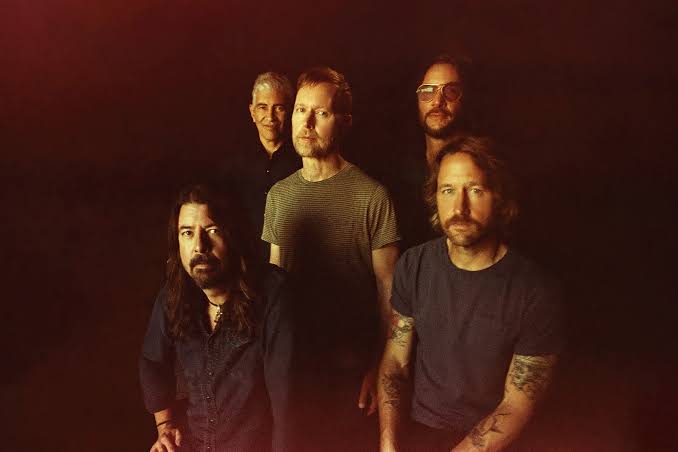Foo Fighters were never, ever going to break up. Dave Grohl is a rock ‘n’ roll lifer and a perpetual motion machine; it’s nearly impossible to imagine him ending the band he started as a solo project following Kurt Cobain’s suicide nearly three decades ago, even after the death of another crucial bandmate. When Taylor Hawkins passed away suddenly last year, the Foo Fighters mourned him in grand fashion, bringing together all-star lineups in London and Los Angeles to honor their legendary drummer. These tributes clearly weren’t the end for the band that has become one of the last world-conquering rock bands standing, enduring decades of music industry changes and leading the charge back into live music post-COVID. A new album was inevitable, and it was expected to address Hawkins’ death. The question was whether it would be any good.

It is. Coming from someone who hasn’t been invested in new Foo Fighters music for a long time, But Here We Are is their most vital, least obligatory-sounding record in years. Taylor Hawkins would be proud. Despite the return of producer Greg Kurstin, Foo Fighters are promoting the new LP as a return to the sonic “naiveté” of their self-titled debut, while acknowledging the material is “informed by decades of maturity and depth.” This marketing makes sense when listening to these songs. But Here We Are captures the raw and personal feeling of Grohl’s earliest Foo Fighters tracks, sounding like a wave of inspiration similar to the one that possessed Grohl in the mid-’90s. The circumstances are parallel: then, Grohl was reeling from the death of a bandmate; now, But Here We Are addresses Hawkins’ loss head-on without explicitly naming him. Most of its 10 songs deal directly with the grieving process.
Grohl opens the album with “Rescued,” announcing, “It came in a flash/ It came out of nowhere/ It happened so fast/ And then it was over.” On “Under You,” he laments, “Someone said I’ll never see your face again/ Part of me just can’t believe it’s true.” These sentiments pile up throughout the album: “I’ve been hearing voices/ None of them are you”; “I had a vision of you/ And just like that/ I was left to live without it”; “Where are you now? Who will show me how?” Some moments are deeply moving, like when Grohl assures Hawkins, “I’ll take care of everything,” on “Show Me How,” with guest vocals from Grohl’s daughter Violet adding emotional weight.
Musically, the album is straightforward, crowd-pleasing arena rock, reinvigorated by tangible passion. The singles are strong: “Rescued” is a proper anthem, “Under You” a Jawbreaker-esque power-pop gem, and the rest of the record mostly maintains that quality. The album’s sadness is palpable but not morose, targeting the same pleasure centers as the band’s early LPs. Grohl channels old favorites from the classic rock canon, filtering them through the Foo Fighters’ bombastic template. “Nothing At All” combines spunky new wave verses with a post-grunge chorus, “Hearing Voices” echoes The Cure, “Beyond Me” is a vintage power ballad, and “The Glass” features a melody worthy of Paul McCartney or Alex Chilton. Grohl’s balance between agile beauty and searing screams reminds us why Foo Fighters have scaled such heights.
The album ends with two epics. The linear 10-minute “The Teacher” builds toward Grohl’s resolution to “Try and make good with the air that’s left/ Counting every minute/ Living breath by breath” and climaxes in a guttural “Goodbye!” set to tumultuous drumming. The finale, “Rest,” starts as an acoustic lullaby before exploding into a slowcore/doom metal hymn with Grohl howling, “Rest/ You can rest now/ Rest/ You can be safe now.”
None of these moves feel forced or inauthentic. Foo Fighters have long embraced the concept of ritual, emerging in the 21st century as the ideal of a 20th-century rock band, true believers keeping alive the flame for a version of rock stardom that no longer exists. In 2023, Foo Fighters provide rock’s familiar thrills and apply those comforts to the universal experience of grief, lending fresh purpose to otherwise stale tropes. Many will find catharsis in these songs, wondering if anything could ever be this real forever. The sober truth is that it cannot, but as long as they can, Foo Fighters will not stop trying to make you feel that good again.
